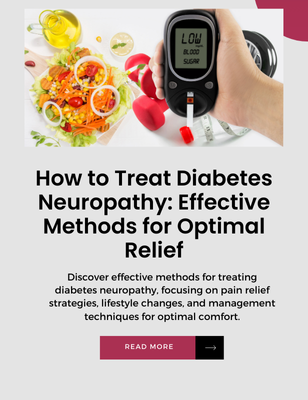A healthy mindset is crucial for overall well-being and personal growth. It affects how we think, feel, and act in our daily lives. Maintaining a positive outlook, practicing self-care, and developing resilience are key attributes of a healthy mindset.
Building strong relationships and having a support system also play a vital role in mental wellness. These connections provide emotional support and help us navigate life’s challenges. Regular exercise, a balanced diet, and good sleep habits contribute to both physical and mental health.
Mindfulness and stress management techniques can help reduce anxiety and improve focus. Setting realistic goals and celebrating small wins boosts self-esteem and motivation. Learning to accept and manage emotions in a healthy way is another important aspect of maintaining a positive mindset.
Key Takeaways
- Positive thinking, self-care, and resilience are essential for a healthy mindset
- Strong relationships and support systems contribute to mental well-being
- Mindfulness, stress management, and emotional regulation improve overall mental health
Key Takeaways
A growth mindset is crucial for maintaining mental health. This outlook sees challenges as chances to learn and improve.
Self-awareness helps people understand their thoughts and emotions. It allows them to spot negative patterns and make positive changes.
Resilience is key to bouncing back from setbacks. It involves adapting to stress and adversity while staying focused on goals.
Positive self-talk can boost confidence and motivation. Replacing negative thoughts with encouraging ones supports a healthy mindset.
Practicing gratitude shifts focus to the good things in life. This habit can improve mood and overall outlook.
Setting realistic goals gives a sense of purpose and direction. Achieving these goals builds self-esteem and reinforces a positive mindset.
Mindfulness techniques help manage stress and anxiety. They promote being present in the moment and accepting thoughts without judgment.
Building strong relationships provides emotional support. A network of friends and family can offer encouragement during tough times.
Regular exercise and a healthy diet support mental well-being. Physical health directly impacts mood and cognitive function.
Continuous learning and personal growth keep the mind active and engaged. This fosters a sense of achievement and purpose.
Understanding Mind Health
Mind health involves our thoughts, feelings, and behaviors. It affects how we cope with stress and relate to others. Taking care of our minds is key for a good life.
Definition and Importance
Mind health refers to our mental and emotional well-being. It’s about how we think, feel, and act. A healthy mind helps us handle life’s ups and downs. It lets us form good relationships and make smart choices.
Keeping control over one’s mind is crucial for overall health. When our minds are healthy, we can work well and enjoy life. We bounce back from hard times faster.
Good mind health also helps our bodies. It can lower stress and boost our immune systems. This shows how connected our minds and bodies really are.
Common Misconceptions
Many people think mind health only matters if you have a mental illness. This isn’t true. Everyone needs to care for their mind, just like their body.
Another myth is that mind health is fixed. In fact, we can improve it with practice. Our beliefs about our mental abilities can change how we feel and act.
Some think positive thinking alone fixes everything. While it helps, it’s not a cure-all. Real mind health needs more than just happy thoughts. It takes work and sometimes professional help.
Components of a Healthy Mindset
A healthy mindset involves several key attributes that work together to support mental wellbeing. These components help people navigate life’s challenges and maintain a positive outlook.
Self-Awareness
Self-awareness is the ability to recognize and understand one’s own thoughts, feelings, and behaviors. It forms the foundation of a healthy mindset.
People with strong self-awareness can identify their strengths and weaknesses. This knowledge allows them to make better decisions and set realistic goals.
Self-aware individuals are more likely to manage their emotions effectively. They can recognize when they’re feeling stressed or anxious and take steps to address these feelings.
Developing self-awareness often involves practices like meditation, journaling, or talking with a therapist. These activities help people tune into their inner experiences and gain insights about themselves.
Adaptability
Adaptability is the capacity to adjust to new situations and overcome challenges. It’s a crucial component of a healthy mindset in our ever-changing world.
Adaptable people are flexible thinkers. They can come up with creative solutions to problems and aren’t afraid to try new approaches.
This trait helps individuals cope with stress and setbacks. When faced with obstacles, adaptable people can adjust their plans and keep moving forward.
Developing adaptability involves:
- Embracing change
- Learning from mistakes
- Being open to new ideas
- Practicing problem-solving skills
Optimism
Optimism is the tendency to expect positive outcomes and see the bright side of situations. It’s a powerful component of a healthy mindset.
Optimistic people tend to have better mental health. They experience less stress and anxiety and are more resilient in the face of challenges.
This positive outlook can improve physical health too. Studies show that optimistic people often have stronger immune systems and live longer.
Cultivating optimism doesn’t mean ignoring problems. It involves:
- Focusing on solutions rather than dwelling on problems
- Practicing gratitude
- Challenging negative thoughts
- Surrounding oneself with positive people
Strategies for Mental Well-being
A healthy mindset relies on several key practices. These include managing stress, building good habits, and being present in the moment.
Stress Management
Stress can harm mental well-being. To manage it, try deep breathing. Take slow breaths in and out for a few minutes each day. This calms the body and mind.
Exercise also helps reduce stress. A brisk walk or jog can clear the head. Aim for 30 minutes of activity most days.
Talking to others is another useful tool. Share worries with a friend or family member. They may offer support or a new point of view.
Time management can cut down on stress too. Make a to-do list and tackle one task at a time. This prevents feeling overwhelmed.
Healthy Habits
Good habits support mind health. Sleep is key. Aim for 7-9 hours each night. A regular sleep schedule helps the body and brain recover.
Eating well also matters. Choose fruits, vegetables, and whole grains. These foods give the brain needed nutrients.
Limit alcohol and avoid smoking. Both can harm mental health over time.
Stay social. Spend time with friends and family. Join a club or group with shared interests. Social ties boost mood and provide support.
Mindfulness Practices
Mindfulness means focusing on the present moment. It can improve mental health in many ways.
Try meditation. Sit quietly and focus on your breath for a few minutes each day. This can reduce worry and increase calm.
Practice gratitude. Write down three things you’re thankful for each day. This shifts focus to the positive aspects of life.
Do one thing at a time. When eating, just eat. When walking, pay attention to each step. This reduces stress and increases enjoyment.
Mindfulness training can change how the brain works. It may help create lasting positive traits.
Overcoming Mental Health Challenges
Mental health challenges can be tough, but there are ways to work through them. Knowing your triggers, getting support, and professional help are key steps.
Identifying Triggers
Triggers are things that set off mental health issues. They can be events, people, or places. Keeping a journal helps spot patterns. Write down what happens before you feel bad.
Some common triggers are:
- Stress at work or school
- Money problems
- Big life changes
- Lack of sleep
- Unhealthy relationships
Once triggers are clear, a person can make plans to avoid or deal with them. This might mean changing routines or learning new coping skills.
Seeking Support
A strong support system is vital for mental health. Friends and family can offer comfort and help. Support groups connect people with similar struggles.
Ways to build support:
- Open up to trusted friends
- Join a club or group
- Volunteer in the community
- Use online forums carefully
It’s okay to ask for help. Sharing feelings can make them less overwhelming. A good support network provides understanding and encouragement.
Professional Therapy
Sometimes, talking to a therapist is the best choice. Therapists have special training to help with mental health. They can teach new ways to think and act.
Types of therapy include:
- Cognitive-behavioral therapy (CBT)
- Mindfulness-based therapy
- Talk therapy
Therapy can help people change fixed mindsets. It gives tools to face challenges. A therapist can also check if medicine might help.
Regular sessions build skills over time. These skills last even after therapy ends. Many find that therapy makes a big difference in their lives.
The Impact of Physical Health on Mental State
Physical health plays a crucial role in shaping our mental state. Good physical health can boost mood, reduce stress, and improve cognitive function. Taking care of our bodies through proper nutrition, regular exercise, and adequate rest helps maintain a positive mindset.
Diet and Nutrition
A balanced diet is key to supporting mental health. Eating nutritious foods provides the brain with essential nutrients for optimal function.
Healthy eating habits can improve mood and reduce the risk of mental health issues. Foods rich in omega-3 fatty acids, such as fish and nuts, support brain health. Complex carbohydrates help regulate serotonin levels, promoting feelings of calmness.
Staying hydrated is also important for mental clarity. Dehydration can lead to fatigue and difficulty concentrating.
Limiting processed foods, sugar, and caffeine can help stabilize mood and energy levels. A diet high in fruits, vegetables, and whole grains provides essential vitamins and minerals for mental well-being.
Exercise and Activity
Regular physical activity is a powerful tool for maintaining mental health. Exercise releases endorphins, which are natural mood boosters.
Engaging in physical activity can reduce symptoms of anxiety and depression. Even moderate exercise, like a brisk walk, can have positive effects on mental state.
Exercise also improves sleep quality, which is crucial for mental health. It can boost self-esteem and provide a sense of accomplishment.
Different types of exercise offer various benefits:
- Aerobic activities improve cardiovascular health and mood
- Strength training builds confidence and body image
- Yoga and tai chi promote relaxation and mindfulness
Aim for at least 30 minutes of moderate exercise most days of the week. Find activities you enjoy to make exercise a sustainable habit.
Sleep and Rest
Quality sleep is essential for mental health. Lack of sleep can lead to irritability, mood swings, and difficulty concentrating.
Adults should aim for 7-9 hours of sleep per night. Establishing a consistent sleep schedule helps regulate the body’s internal clock.
Creating a relaxing bedtime routine can improve sleep quality. This may include:
- Avoiding screens before bed
- Practicing relaxation techniques
- Creating a cool, dark sleeping environment
Rest is not limited to sleep. Taking breaks throughout the day can prevent burnout and improve focus. Meditation and deep breathing exercises can provide mental rest and reduce stress.
Prioritizing adequate sleep and rest allows the mind to recharge and process emotions effectively. This leads to improved mood, better decision-making, and increased resilience to stress.
Social and Environmental Influences
Our surroundings and connections play a big role in shaping our mindset. The people we interact with, our work, and how we handle change all affect our mental health.
Relationships and Community
Strong social bonds help build a healthy mindset. Close friends and family provide support during tough times. They also share in our joys and successes.
Positive social connections boost self-esteem and reduce stress. Being part of a community gives us a sense of belonging. This feeling helps fight loneliness and depression.
Healthy relationships require effort. We need to communicate well and show empathy. It’s also important to set boundaries and respect others’ needs.
Work-Life Balance
A good balance between work and personal life is key for mental health. Too much focus on work can lead to burnout and stress.
Maintaining a healthy work-life balance involves:
- Setting clear boundaries between work and personal time
- Making time for hobbies and relaxation
- Prioritizing self-care and health
It’s crucial to find jobs that align with our values. A positive work environment boosts job satisfaction and overall well-being.
Coping with Change
Life is full of changes. How we deal with them affects our mental health. A growth mindset helps us see changes as chances to learn and grow.
Key strategies for handling change include:
- Staying flexible and open-minded
- Focusing on what we can control
- Seeking support when needed
Learning from past experiences helps us face new challenges. It’s normal to feel stressed during big changes. Taking care of our physical and mental health during these times is important.
Personal Growth and Mindset
Developing a healthy mindset involves key attributes that shape our approach to life. These include setting meaningful goals, embracing lifelong learning, and facing challenges head-on.
Goal Setting
Setting clear goals is vital for personal growth. It gives direction and purpose to our efforts. Effective goal setting starts with being specific about what we want to achieve.
SMART goals (Specific, Measurable, Achievable, Relevant, Time-bound) are a useful framework. They help make goals concrete and actionable.
Short-term and long-term goals should align. This creates a roadmap for progress. Regular check-ins help track progress and adjust as needed.
Goals should challenge us but remain realistic. Unrealistic goals can lead to frustration. Achievable goals build confidence and motivation.
Lifelong Learning
A growth mindset is key to lifelong learning. It’s the belief that abilities can be developed through effort and practice.
Curiosity drives learning. Asking questions and seeking new experiences expands knowledge. Reading widely, taking courses, and trying new hobbies all contribute to growth.
Learning from mistakes is crucial. Viewing errors as opportunities for improvement fosters resilience. It helps overcome fear of failure.
Seeking feedback aids personal development. It provides new perspectives and highlights blind spots. Being open to constructive criticism accelerates growth.
Embracing Challenges
Challenges are opportunities for growth. They push us out of our comfort zones and develop new skills. Facing difficulties head-on builds mental toughness.
Problem-solving skills improve with each challenge tackled. Breaking big problems into smaller steps makes them manageable. This approach builds confidence over time.
Resilience grows through overcoming obstacles. It’s the ability to bounce back from setbacks. Practicing self-care and maintaining a support network helps build resilience.
Viewing challenges as learning experiences changes our perspective. It shifts focus from fear to growth. This mindset turns obstacles into stepping stones for success.
Conclusion
A healthy mindset is key for mental well-being. It helps people face challenges and grow. Some important traits for a good mindset are being positive and flexible.
Growth mindsets allow people to learn and improve. They see setbacks as chances to get better, not failures.
Resilience is also crucial. It lets people bounce back from hard times. Resilient children who stutter cope better with their speech issues.
Grit and determination help maintain a healthy mindset. They keep people going when things get tough.
Self-awareness matters too. It helps people understand their thoughts and feelings. This leads to better mental health choices.
Lastly, a healthy mindset includes self-care. Regular exercise, good sleep, and stress management all play a part in mind health.
By focusing on these attributes, individuals can build and keep a strong, healthy mindset.
Frequently Asked Questions
A healthy mindset involves key traits and habits that impact mental well-being. Physical health, social connections, and stress management also play important roles in maintaining mental wellness.
How can one identify the presence of a healthy mindset?
A healthy mindset often shows up in positive beliefs about personal growth. People with this outlook see challenges as chances to learn and improve. They bounce back from setbacks more easily.
Their self-talk tends to be encouraging and supportive. They focus on solutions rather than dwelling on problems.
What daily habits contribute to mental well-being?
Regular exercise is a key habit for mental health. It boosts mood and reduces stress. Eating a balanced diet also supports brain function and emotional stability.
Practicing mindfulness or meditation can calm the mind and improve focus. Getting enough sleep is crucial for mental clarity and emotional regulation.
In what ways does physical health influence mental health?
Physical and mental health are closely linked. Regular exercise releases endorphins, which improve mood and reduce anxiety.
A nutritious diet provides the brain with needed nutrients for optimal function. Adequate sleep allows the brain to process emotions and consolidate memories.
What are the defining traits of a growth-oriented mindset?
People with a growth mindset believe their abilities can be developed. They embrace challenges as opportunities to learn.
These individuals persist in the face of setbacks. They see effort as a path to mastery and learn from criticism.
How does stress impact mental health and how can it be managed?
Chronic stress can lead to anxiety, depression, and other mental health issues. It can impair memory and decision-making skills.
Stress management techniques include deep breathing, exercise, and time management. Setting boundaries and practicing self-care are also effective strategies.
What role do social relationships play in maintaining mental health?
Strong social connections are vital for mental well-being. They provide emotional support and a sense of belonging.
Positive relationships can boost self-esteem and reduce stress. They offer opportunities for personal growth and shared experiences.
Conclusion
A healthy mindset is key to living a fulfilling life. It helps people face challenges and grow from them. Some traits stand out as especially important.
Resilience tops the list. It lets people bounce back from setbacks and keep moving forward. A growth mindset goes hand in hand with resilience. It’s the belief that skills can improve with effort.
Optimism and gratitude also play big roles. They help people see the good in life, even during hard times. These traits build emotional strength.
Self-awareness rounds out the key attributes. It allows people to understand their thoughts and feelings. This awareness helps in managing emotions and making good choices.
Developing these traits takes time and practice. But the payoff is huge. A healthy mindset leads to better relationships, less stress, and more success.
Everyone can work on these skills. Small steps each day add up over time. The journey to a healthier mindset is worth the effort.














